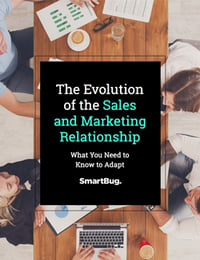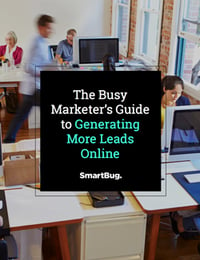
Marketing for Facebook Groups
January 6, 2020
By Nicki Kamau
With over 2.5 billion users, Facebook has become essential to marketing efforts.
And while many brands have set up their pages and even run Facebook ads or boosted posts, not many have explored or even taken the time to understand the wealth of marketing opportunities available to them through Facebook Groups.
As of 2019, 1.4 billion people use Facebook Groups with a total of over 10 million Facebook Groups in existence—so it's highly likely that your buyer persona is engaging in a group.
How Can Facebook Groups Help Your Marketing Strategies?
- They offset Facebook’s recent algorithm changes by helping to generate engagement and increase organic reach.*
- They can foster a stronger sense of community around your brand.
- They can increase customer satisfaction and sales with word-of-mouth recommendations.
*Even Facebook admits that it prioritizes content from Groups that users frequently engage with.
Throughout this article, we’ll show you how to use Groups to grow your business, but before we begin, we need to address this question:
What’s the Difference Between a Facebook Page and a Facebook Group?
A Facebook Page is the equivalent of presenting your business card to a prospect while a Group is like going out to coffee with a prospect. A Facebook Page is where you present your business: who you are, what you offer, contact information, links to your content, and so on.
Groups, on the other hand, encourage you to engage in two-way conversations between your business and your prospects. They’re designed to be active forums where members can ask questions, post about events, follow conversations, share photos and links—and more.
Tips and Tricks for Using Groups to Improve Your Marketing Efforts
After you've identified that your buyer persona is in fact using Facebook, and interacting within Groups you can determine your strategy. You can join existing relevant Facebook Groups provide value to the conversations happening, or you can create your own Group. You can bet that the people who join your Facebook Group are interested in engaging with your brand in some way. This offers is an excellent opportunity for you to nurture and engage these communities of interested people. So again, there are two general ways to use Facebook Groups:
- Join existing Groups and become a part of the community by helping others freely, connecting people in your network, and providing value.
- Create your own Group to nurture customer relationships.
The sole purpose behind joining or creating a Group is not to promote your content, but rather to build a community of people (potential prospects) and deliver valuable content.
Network, Don’t Sell
No one joins your Group because they want to be sold to, rather they join because they want to participate in the interesting and relevant discussions you have there. In fact, Sprout Social recently revealed that almost 50 percent of consumers say they join communities like Facebook Groups so they can interact with brands directly.
The discussions you have with your members can include anything related to your industry or niche; you can invite influencers to the conversation, share expertise, and solve problems.
You’ll really want to consider your customer and buyer personas when developing your Group’s added value elements. What is it personas are looking for? What problem can you solve for them? What benefits can you provide? Rather than promoting your business or brand, focus on the value and benefits you can give your Group members.
One Facebook Group that does this well is Digital Marketing Hub (DMH) which has 43,000 members. Dedicated to entrepreneurship and marketing, DMH is a large community that shares new information, latest trends, and industry developments.
Use Your Group as Your Beta Testing Ground
Although the primary purpose of your Group is to generate discussions with your target market, it can also be a safe place to test new content ideas—such as a new blog idea, social media post, or an entire content marketing strategy—before you release them to the general public.
For example: If you’re considering writing a blog about the “Top 10 Apps to Use to Boost Your SEO,” you could start a conversation within your own Group—or other Groups—and see what people come up with and why. This could help you learn the level of interest in this topic, cut down your research time, and assist you in brainstorming new content ideas for further down the line.
In addition to testing your own ideas, you can develop new content ideas from the conversations and comments that happen on your page. You’ll want to build on the conversations and comments with the most likes and interactions.
Take Advantage of Customer Insight
You can also use Groups to better understand what product or service would best satisfy their needs. You could do the research, market evaluations, and so on, but you could also start by asking your Group members. Groups provide a direct line of communication between your brand and a specific set of people—why not take advantage of it?
Let’s say you’re presenting at or sponsoring a conference but you’re unsure how to provide the most value to the attendees. You could post a simple question on a Facebook Group: We’re excited to announce we’ll be presenting at the XYZ Conference! What are you looking to learn about at this year's conference?
Provide Incredible Customer Service
Did you know that 86 percent of buyers said they would pay more for a superior customer service experience? That should come as no surprise. Even for a dog walker, we all want the person we hire to be on time, communicate effectively, and provide excellent care to our furry creatures. No one wants to choose the cheaper dog walker who doesn’t show up, lacks communication skills, and doesn't understand how to care for animals.
Facebook Groups give you the opportunity to provide incredible customer service, especially when you have dedicated Groups for customer inquiries, which further your availability to your customers and prospects and give you yet another outlet to connect with them one-on-one.
We’ve all been there, searching for that 1-800 number for a business because no one responded to our email. Facebook Groups solve this problem, making it easy for customers and prospects to connect. Just make sure you have a system in place to respond to member questions as quickly as possible. Assign multiple admins to your Facebook Group if necessary.
Make Event-Specific Groups
Does your business participate in and/or organize a lot of events? Workshops? Classes? Seminars? Webinars? Conferences? If so, building a community around these events may be the way to go. Participants can not only ask questions and get help before the event happens, but they can also share photos and comments after the event happens.
A good example is a Facebook Group called Tech Saturdays. They hold monthly events for tech industry entrepreneurs and experts to share knowledge.
Show Appreciation for Your Customers
Another idea is to create a Facebook Group dedicated to your current customers and brand ambassadors, a Group that is designed to make them feel special and appreciated and have a sense of pride and a spirit of community.
A good example of this is the Golden Tote Trading Group for buyers of Golden Tote products: “Join our members only group created by Golden Tote to chat with other GT shoppers, post photos and connect to swap and trade your items. We welcome and will approve all members who are previous and current customers.“
Incorporate Your Group into Your Overarching Strategy
Like with any marketing, you don’t want to just set up a Facebook Group and post whatever comes to mind. Create a content strategy that includes a content calendar, goals, campaigns, an engagement strategy, optimization tactics, and content testing strategies (user-generated content, Facebook Live and native Facebook video, interactive content like Polls, and images such as gifs, memes, photos, and infographics).
If you put the time and effort into building a fantastic Facebook Group, make sure you promote it so your audience knows about it. You can do this in your email newsletters, on social media platforms, via invites to your current customers, and on your website.
Make Sure to Measure Your ROI
You may be thinking everything we’ve said this far about Facebook Groups is fine and dandy, but you can’t possibly consider a tool with no effective ability to measure your return on investment. As the marketing professional you are, you’ll of course be watching for any changes, hopefully increases, in sales and customer satisfaction after the launch of your Facebook Group, but you can also check the web to see if there is an increased level of buzz around your product or service. By using an internet monitoring tool, you can not only see if people are talking more about your product, but also whether or not those conversations are positive or negative.

About the author
Nicki Kamau is the Marketing Director for SmartBug Media. Nicki strives to up-level SmartBug clients’ marketing ROI through the implementation of partners. Her goal is to create a seamless relationship from partner tech, to SmartBug, to client, by developing and overseeing partner programs, ensuring efficiency and mutually beneficial relationships within SmartBug partner ecosystem. Prior to her role in partnerships, Nicki focused on lead generation within the B2B space at tech startups, mid-market organizations, and publicly traded corporations for over ten years. She enjoys exploring the outdoors with her two sons, dog and husband, right-brained activities, and tasting every tea she can get her hands on. Read more articles by Nicki Kamau.









